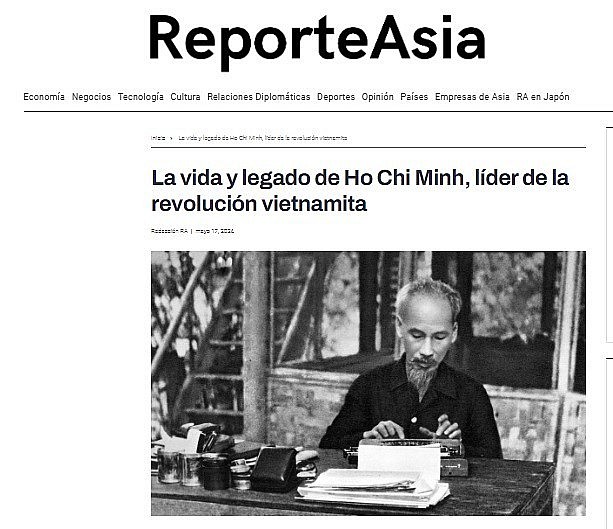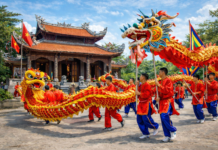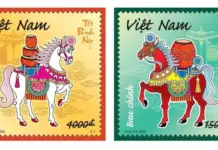
|
| An Argentine publication, Reporte Asia, featured an article lauding President Ho Chi Minh as a great revolutionary leader and an enduring symbol of resistance against Western colonial powers. |
The piece, titled “The Life and Legacy of Ho Chi Minh, Leader of the Vietnamese Revolution,” highlights the profound impact of President Ho’s ideology, which transcended historical boundaries and influenced political and social transformations in East Asia during the latter half of the 20th century.
It delves into the historical context of French colonial rule in Vietnam during Ho Chi Minh’s early life, including his education in Hue, involvement in anti-colonial protests, and subsequent journey abroad in search of a path to liberate his country. This journey spanned three decades and took him across five continents.
The article offers a glimpse into the formative years of the revolutionary, then known as Nguyen Tat Thanh, focusing on his time in Europe, particularly France, where he actively participated in social movements against colonialism. This period played a pivotal role in shaping Ho Chi Minh’s ideology, as reflected in his writings from that time, which unequivocally conveyed his determination to fight against colonial oppression and exploitation.
On the same day, Resumen Latinoamericano published a complementary piece, underscoring the pivotal moment when President Ho Chi Minh established the Communist Party of Vietnam in February 1930. They praised his strategic acumen, noting that the formation of a political party representing the interests of the working class and the Vietnamese people demonstrated his talent as a visionary leader.
In 1941, President Ho Chi Minh, alongside General Vo Nguyen Giap, returned to Vietnam to prepare for the August Revolution in 1945. This culminated in the historic Declaration of Independence, proclaimed by President Ho Chi Minh himself on September 2, 1945, at Hanoi’s Ba Dinh Square, marking the birth of the Democratic Republic of Vietnam, now known as the Socialist Republic of Vietnam.








